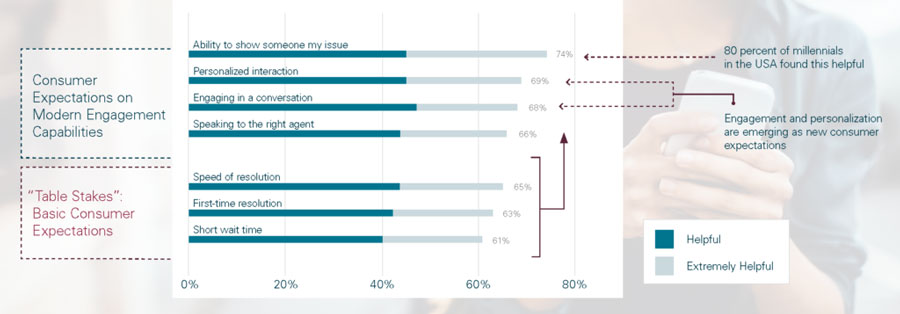Since the start of 2018, Certain has kept a close eye on the role that personalization is playing in marketing strategies, particularly in the case of events. As the year progresses, we are seeing how this need to personalize the attendee, customer, or prospect experience is not isolated strictly to marketing and sales, but should be factored into all areas of business strategy.
Humanizing the Customer Experience
In a recent survey by Oracle of over 5,000 of its consumers worldwide, respondents expressed an overall dissatisfaction over poor customer engagement, pointing to outdated methods of customer service as the primary culprit.
Upon digging deeper, it became clear that at the core of consumer expectation was the need for a modern, personalized engagement experience, one that balanced automated technologies with tools for interactions such as video, screen sharing, and chat. With 47 percent of consumers rating humanization of the customer experience as the most important benefit in modern engagement capabilities, the need for personalization is clear.
“Customers are a company’s most critical asset, but in a quest for efficiency, customer engagement has become less aware and overly impersonal,” said Doug Suriano, senior vice president, general manager, Oracle Communications.

A Modern, Personal Approach to Customer Engagement
Oracle’s survey reinforces a trend that has emerged in recent years in which the over-automation of the customer experience and engagement has grown to a detrimental degree, one that businesses are now working to correct.
The efficiency sought by incorporating automated services has proven to have the reverse effect in some cases. An example of this is the use of automated navigation menus, where customers find themselves repeating information to multiple sources. 76 percent of Oracle’s survey respondents indicated that they will use a company that gets them to the appropriate individual with a minimal number of menu selections. Here we find a tool that has become an industry norm now represents a major factor in customer retention.
In the events industry, we see this need for personalization affecting a multitude of areas – from the early stages of pre-event marketing, to one-on-one engagement on the expo floor. Event marketers are addressing this need in a variety of ways that involve a major emphasis on how we collect real-time data to engage with prospects. In doing so, marketers have the advantage of better realizing and nurturing attendees’ priorities in a mutually beneficial way.
Correcting the Course
Event marketers are finding a number of ways to address the need for personalization in field events, and are looking at the issue from a variety of angles in order to inform their marketing strategies. Industry leaders point not only to data, but the emerging technologies of AI, and the reach of speakers and influencers to hone in on creating personal, effective engagement.
Oracle kicked off its 2018 Modern Customer Experience conference this year by unveiling a number of new products and updates aimed at improving and personalizing the customer experience. As companies seek to better understand the needs of their customers and prospects, the defining factors for success will come down to how willing they are to respond to the feedback they receive.
With all signs pointing towards the need for increased personalization, organizations will have to start evaluating where this fits not only into their marketing strategy, but into their customer engagement approach as well.
